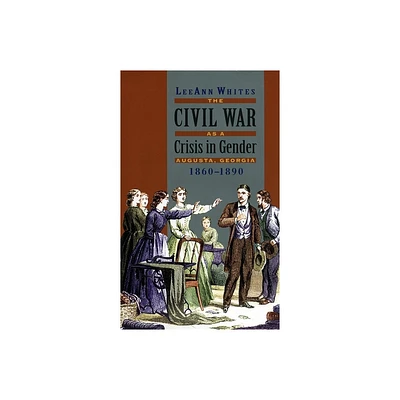Home
Caesar and the Crisis of the Roman Aristocracy: A Civil War Reader
Loading Inventory...
Barnes and Noble
Caesar and the Crisis of the Roman Aristocracy: A Civil War Reader
Current price: $24.95


Barnes and Noble
Caesar and the Crisis of the Roman Aristocracy: A Civil War Reader
Current price: $24.95
Loading Inventory...
Size: OS
*Product Information may vary - to confirm product availability, pricing, and additional information please contact Barnes and Noble
One of the Greatest Military and Political Geniuses in western history, Julius Caesar stirs almost as much controversy today as he did in his own time. Neutrality toward Caesar may well be impossibleand according to James S. Ruebel, it is undesirable. In
Caesar and the Crisis of the Roman Aristocracy
, Ruebel introduces students of Latin to Caesar and the civil war that Pompey led against him from 49 to 48 B.C. By presenting the Roman leader in his own words and those of his contemporaries, the book forces readers to confront the same choices that Cicero and others faced in this tumultuous period.
Ruebel places the readings in historical context in his introduction, and then presents substantial portions of Caesar’s
De Bello Civili
in Latin. Extracts from the writings of Caesar’s contemporaries (most in English translation), along with Ruebel’s commentary and notes, further illuminate Caesar’s account for students and invite them to grapple with such issues as personal honor, morality, leadership, patriotism, and the justifications for civil war.
Caesar and the Crisis of the Roman Aristocracy
, Ruebel introduces students of Latin to Caesar and the civil war that Pompey led against him from 49 to 48 B.C. By presenting the Roman leader in his own words and those of his contemporaries, the book forces readers to confront the same choices that Cicero and others faced in this tumultuous period.
Ruebel places the readings in historical context in his introduction, and then presents substantial portions of Caesar’s
De Bello Civili
in Latin. Extracts from the writings of Caesar’s contemporaries (most in English translation), along with Ruebel’s commentary and notes, further illuminate Caesar’s account for students and invite them to grapple with such issues as personal honor, morality, leadership, patriotism, and the justifications for civil war.


















